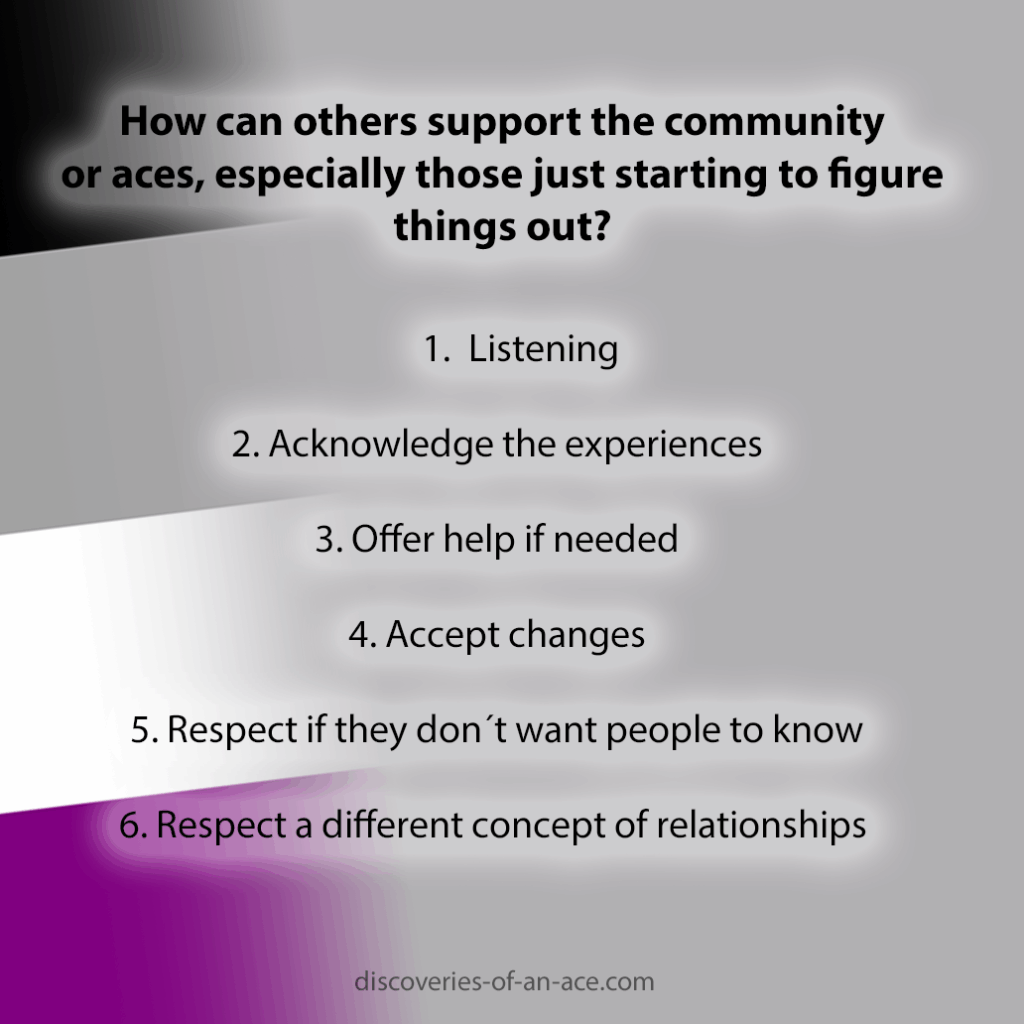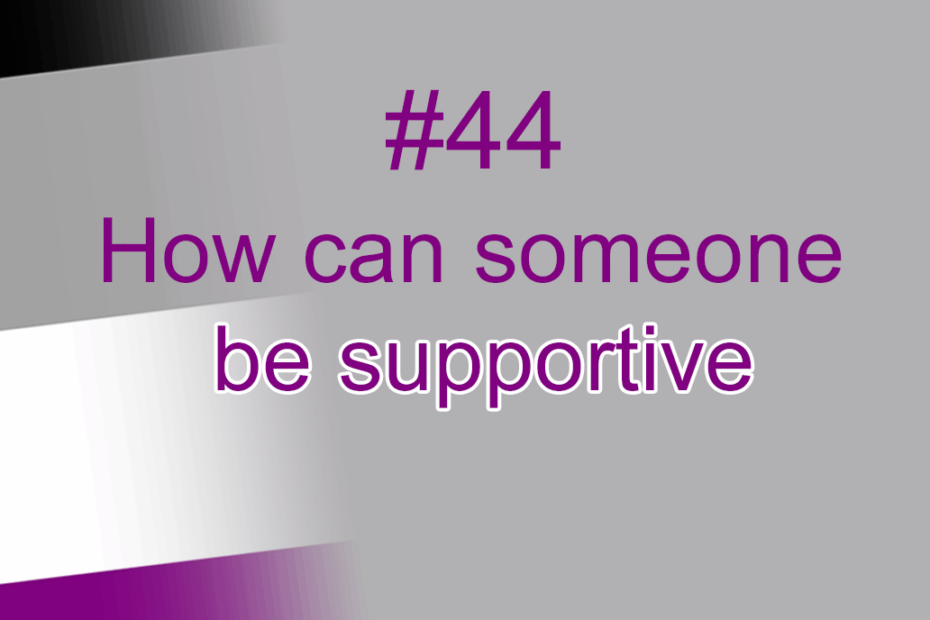Dear Readers,
I apologize for my inconsistency in posting. I want to be honest: While summer is energizing for many, it’s a tough season for me, which affects my motivation to write. A lack of motivation, energy, and a persistent craving for a nap are making life a bit more difficult at the moment. I´m sorry it affected the blog as well.
Over the last two years, I’ve explored asexuality—both personally and as a topic. I met relatives, friends, and especially parents who had questions because someone close to them is asexual, and they wanted to help. This is amazing. Often, instead of support, we face judgment.
As an ace, I wondered: How can others support the community or aces, especially those just starting to figure things out?
- Listening: To me, this is the most crucial aspect. It’s a good starting point. Be open to what is said. You don’t need the same experiences or complete understanding of everything. However, listening to someone matters a great deal.
- Acknowledge the experiences: Acknowledging asexuality as a sexual orientation is a good step. It helps the other person feel secure.
- Offer help if needed: You can help research asexuality if needed. Or, give the person space to come to terms with their feelings. It may take a while, and that’s totally ok. Asexuality is complex. Sometimes, finding a nearby asexual community can help.
- Asexuality is fluid: Asexuality can change as you get older. To outsiders, this may seem inconsistent or give the impression that someone is “playing” ace. Some know their sexual orientation early, and it never changes. Others may be uncertain for long periods.
- Respect if they don´t want people to know: Society may not always be understanding. Ask if the person is ok with sharing their sexual orientation. This can be hard. Some aces are vocal about their asexuality, others are not. Respect their terms—especially if they don’t want to be outed at specific times.
- The concept of relationships: Aces can have loving, caring relationships. These may appear slightly different on the outside. But never forget: to each their own. A good relationship can’t be measured by appearances. It just needs to be fulfilling for those in it.

Listening is the most important step. Everything else is a bonus. I’m not adding things like pride shirts or parades. Starting small within your family or friend group is more important than public awareness.
What do you think is the most important way to show support? How have you experienced it—either giving or receiving?
Best, Ace
(Sources: https://everydayfeminism.com/2016/03/support-asexual-friend/, https://www.asexuality.org/?q=family.html#ff12, https://www.stonewall.org.uk/news/six-ways-be-ally-asexual-people, https://tearaway.co.nz/support-asexual-friend/, )
